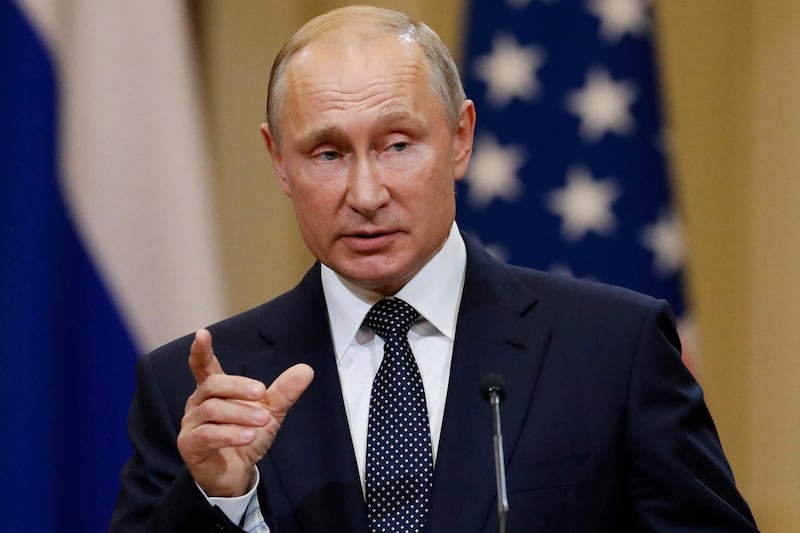US mid-term elections are likely to be affected by “intense” Russian interference, a former Homeland Security director has warned. Michael Chertoff, who served under George W Bush, also called for the government to regulate the use of bots or accounts impersonating people that sought to disseminate propaganda – rather than rely on social media companies such as Twitter and Facebook.
“I think (the interference) is going to be pretty intense. We are going to see more tampering in the run up to the elections,” he told an audience at the Policy Exchange in London.
“It won’t be aimed at national figures, so it might be difficult to stop because they don’t have the sophistication to detect it. It’s the state or local government monitoring it. Even the intelligence community has publicly said there will be more tampering in the run up to elections,” Mr Chertoff said.
In July, 12 Russian intelligence officers were charged with meddling in the 2016 presidential elections that brought Donald Trump to power. Fake Russia-linked social media accounts and trolls are repeatedly found disseminating Kremlin propaganda across the internet.
Mr Chertoff said the US administration could personally intervene when it came to hostile state acts.
“Efforts to manipulate search engines, bots or impersonating people. These are all things that are not free speech and could be regulated. That’s a category which could have government involvement,” he said.
However, Mr Chertoff said ‘fake news,’ whilst often divisive and misleading, should not be open to government interference.
“Who decides what is fake news? For some people it’s something they just don’t want to read about. One of those is the Kremlin because I know the Russians have a view of cybersecurity that includes keeping information out of the country that they view as unfriendly or not positive. That makes the whole discussion more fraught.”
Also speaking was the former UK home secretary, Amber Rudd, who said: “There has been a case that as long as you know where the information is coming from, let the public make their decision.”
_______________
Read more:
[ Britain blames Putin over spy poisoning ]
[ Right-wing sites swamp Sweden with 'junk news' in tight election race ]
[ Social media needs to rethink its approach ]
_______________
Ms Rudd was home secretary when Russian agents poisoned former double agent Sergei Skripal and his daughter Yulia in March this year in Salisbury, England.
She said Russia had tried to create a "fog of mistrust" so people questioned what was true.
“When we went to talk to the social media platforms and asked them to take action, to take material down and communicate with us more confidently about who might have been putting that material up. Their objection always was, ‘well if we do this we might have to do it for China or Russia,’ she said.







